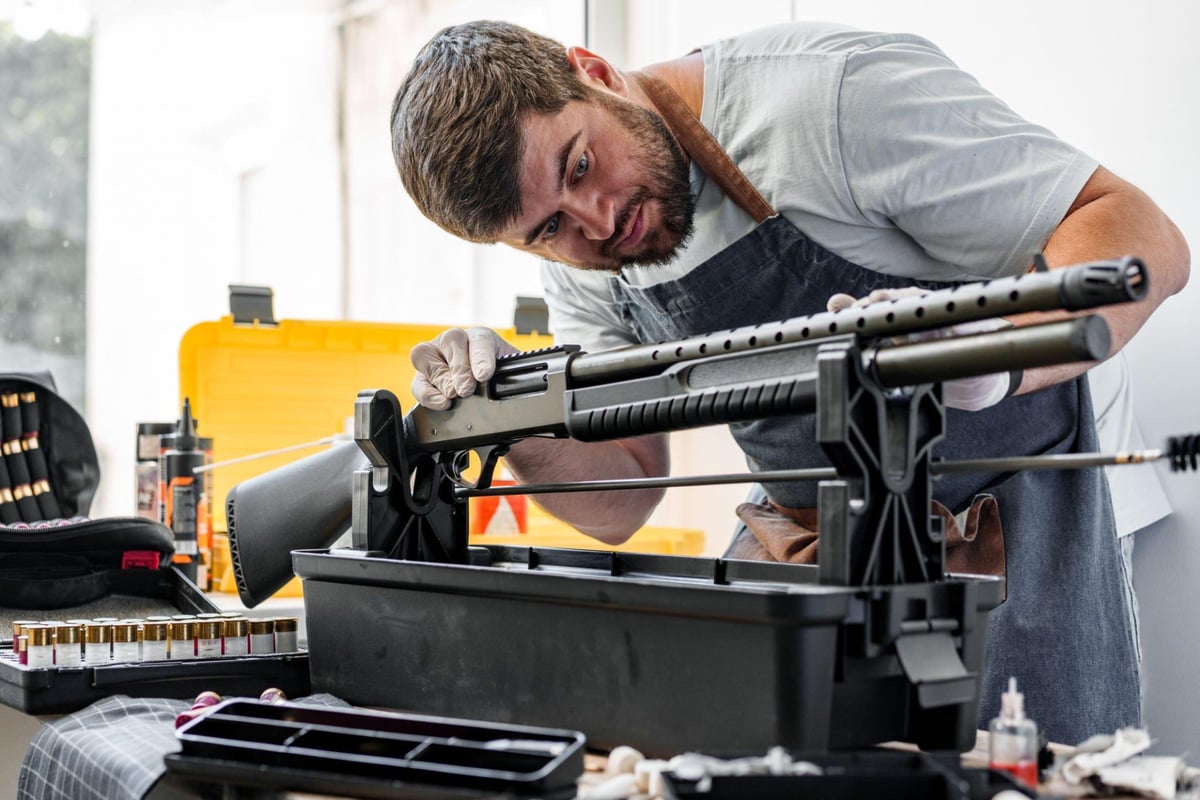How Long Does It Take to Become a Gunsmith?

If you want to become a gunsmith, you need to know how long it takes, what kind of training is required, and how to legally work with firearms. This guide explains each step clearly—from choosing the right program to getting your Federal Firearms License (FFL)—so you can start your career with confidence. Whether you're looking for a fast certificate or planning a longer apprenticeship, you'll find all the information you need to get started.
Short Answer: It usually takes anywhere from a few months up to about two years to become a practicing gunsmith. A quick vocational certificate might be completed in under a year, while an associate degree often requires two years. Some gunsmiths also pursue apprenticeships lasting one to three years. Once you feel confident in your skills, you must apply for a Federal Firearms License (FFL) to work on firearms legally.
Salary & Employment Outlook
Average Salary:
- Gunsmiths typically earn around $40,000–$50,000 per year, with entry-level positions closer to $30,000. Skilled or specialized gunsmiths (e.g., antique restoration, competition builds) can exceed $50k.
- While the BLS does not break out “gunsmith” specifically, it compares to related roles in installation, maintenance, and repair fields, which cluster around $45k median pay.
Job Demand:
- The firearms industry is fairly stable in the U.S. High gun ownership and the need for skilled maintenance keep demand steady.
- Many gunsmith openings arise as veteran gunsmiths retire. Some gunsmiths go on to open their own shops or work for manufacturers or law enforcement armories.
Steps to Become a Gunsmith
1. Research Programs
- Compare local or online gunsmithing classes. Sites like Dreambound are a great resource to filter programs by location, cost, and length.
2. Complete a Gunsmithing Course
- A certificate or associate degree will ground you in firearm safety, machining, and finishing techniques. Online or in-person options exist; choose one recognized by the industry.
3. Gain Practical Experience
- If available, apprentice under a seasoned gunsmith. You’ll refine repair techniques and learn business operations (sourcing parts, dealing with clients).
4. Obtain an FFL
- If you’ll run your own service, file the necessary forms with the ATF. Plan for a thorough background check.
5. Find a Job or Start Your Own Shop
- Many begin in gun shops or sporting goods stores. Others open home-based workshops. As your reputation grows, so can your clientele.
6. Continue Learning
- Even after you’re certified, keep upgrading your skillset. Advanced engraving, stock carving, or brand-specific armorer classes can boost your credibility and income.
Frequently Asked Questions (FAQ)
Q: Do I need a specific degree to be a gunsmith?
A: No. You can start with a certificate or apprenticeship. An associate degree is helpful but not mandatory. Employers mainly want proof of skill and your eligibility to work with firearms legally.
Q: Is gunsmithing regulated by the government?
A: Yes. All gunsmiths who take in firearms from the public for repair or modification must hold a Federal Firearms License (FFL), as outlined by the ATF.
Q: How quickly can I start earning money?
A: Some certificate programs can be completed in under a year, letting you find an entry-level role relatively quickly. However, becoming highly proficient typically requires 1–2 years of focused training plus continuous learning.
Q: Where can I find gunsmith classes?
A: Platforms like Dreambound offer a curated list of gunsmithing programs nationwide, including online and on-campus options.
Final Thoughts
In plain terms, becoming a gunsmith can be as quick as a few months if you complete a focused certificate and start working under a licensed shop, or it might take a couple of years if you pursue a full associate degree and apprenticeship. The good news is there’s room for growth, especially if you specialize or open your own business. With ongoing firearm ownership trends and steady demand for repairs, gunsmithing remains a viable trade for those passionate about craftsmanship and firearms.
Dreambound has written many guides to help you understand what it takes to get this certification. If you're curious about the process or requirements in different states, check out our other guides below:
- How to Become a Gunsmith in Idaho
- How to Become a Gunsmith in Maryland
- How to Become a Gunsmith in Pennsylvania
- How to Become a Gunsmith in Utah
Exploring a variety of professional opportunities? Dreambound has many extensive guides to help you make informed decisions. Check out these guides:






